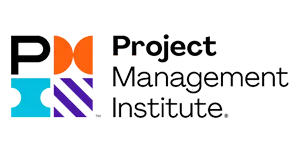
What Is Lean Management?
Lean management is a point of major importance for many organizations across the globe, and it’s likely going to become even more critical in the near future. As people continue to pay more and more attention to the field, we’re also seeing some new developments in it, and various old ideas have been put to the test, refined, or taken out completely.
Understanding the important points of lean management is crucial for any responsible leader who wants to push their organization forward. It’s a tricky topic to get into if you’re not familiar with it already, but it’s definitely very rewarding in the long run.
Basic Concepts
Lean management is a leadership philosophy that’s mainly focused on improving the company in the long run. It might occasionally require making decisions that have a questionable short-term impact on the organization, but a good lean leader should be able to identify those situations, analyze them correctly, and extract some valuable information from them in the end.
There are some conflicting opinions in some circles regarding the exact definition of lean management and what it encompasses. But most experts agree on at several points that encompass its main principles.
Important Principles
Lean management is driven by several ideas. The main point is to create value for the company over time, and this is done by continuous improvement. Various processes are constantly put under analysis to figure out if they can be adjusted to perform better, and the organization as a whole is regularly evaluated to ensure that it meets all current criteria for its growth.
Identifying value and focusing on creating it in the long run is important for a lean leader. Unfortunately, it’s not as straightforward as it seems. The exact definition of value can vary wildly from one company to another, and in some cases, it can be a more abstract concept that requires years of experience in the corresponding industry in order to figure it out correctly.
Working with Employees on a Personal Level
Lean managers should also develop a habit of working more closely with their employees and taking in their concerns on a personal level. Any good leader should be doing that by default, of course. But taking the time to sit down with someone and evaluate their current concerns on a personal level is a unique approach that only lean managers can apply properly.
In the long run, this alone can have the biggest potential impact on the organization if done right. It can not only lead to the discovery of problems that are not immediately obvious on the surface, but it can have various other positive effects too. Raising employee morale is a commonly reported one.
Identifying Root Causes of Problems
Another important point of lean management is that it’s supposed to always look at the root of a problem for its solution. Many modern management styles focus on band-aid solutions that patch up problems in the short term, allowing a manager to focus on something else for the time being while knowing that the actual solution of the problem will become someone else’s task eventually.
That’s not the case with lean management, where a lot of importance is given to identifying root causes of problems and attacking them directly. It can be difficult to get to the bottom of a problem when it encompasses multiple parts of the company and spans across several departments. But if you want to see your company growing unimpeded in the future, that’s pretty much the only way to go about it. On the bright side, lean management offers plenty of attractive solutions for problems like these, so all you have to do is research into them.
Conclusion
Lean management is not very easy to define at a glance, even for people who are experienced with it. But understanding its core principles, and knowing how to apply them in the work of your own organization, are critical points if you want to ensure its long-term success. A lot can go wrong when managing an organization of any size, even a smaller one. Knowing how to anticipate these issues and deal with them in an efficient manner is one of the main defining features of a good lean manager.








Great article, thank you for sharing!
I’d like to add that two useful pillars of the Lean methodology are:
– Respect for people
– Continue to improve
Sometimes there is so much emphasis on the improvement, we tend to forget the respect part. Very important to remember!
I really liked that this was easy to understand. I learned quite a bit about Lean Management based off of this article. I personally liked the important principal section of this blog.
I really liked how this article was easy to follow and understand. I learned quite a bit about Lean Management in this blog. I personally liked the important principles section.
One aspect that is often forgotten when implementing lean is the importance of involving and engaging employees in the process. Lean management is not just about implementing new tools and techniques, but also about changing the culture and mindset of the organization. In order to be successful, employees must be trained and empowered to identify and eliminate waste, and continuously improve processes. Without their participation and buy-in, it can be difficult to achieve lasting results. Another aspect that’s commonly forgotten is the importance of continuous improvement and not just implementing it as a one-time project. Lean is a journey and should be continuously improved as the organization and its environment changes.